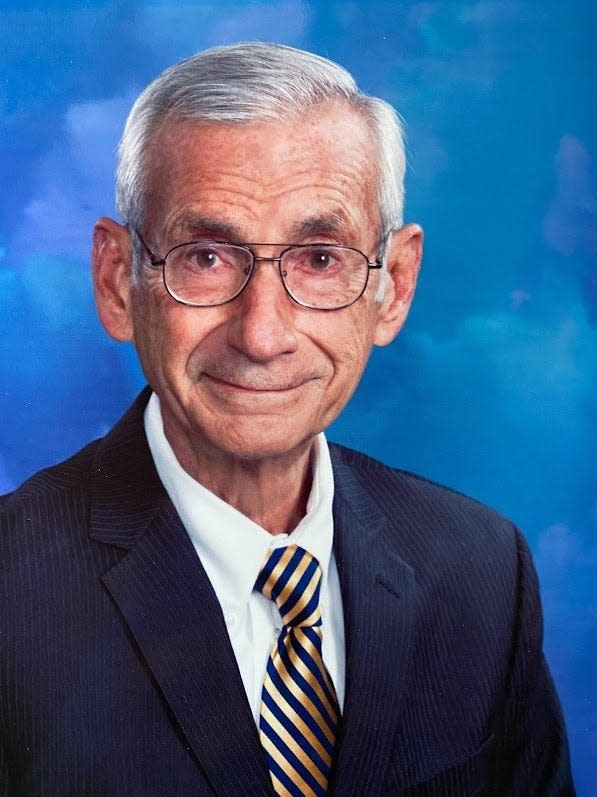Don't ignore long COVID
Americans are feeling pandemic fatigue, but the pandemic is not done with us. According to the CDC, there were 18,000 COVID-19 hospital admissions during the last week of September, these admissions suggesting sicker patients with COVID-19. This number is expected to increase this coming winter.
The government defines LONG COVID (LC) as having new or worsening symptoms that last 3 months or longer after COVID infection and lasting at least two months without other explanation. The symptoms of LC can be mild or even disabling and quite variable in different individuals.
Common symptoms include: tiredness or fatigue that gets worse after physical and/or mental effort; fever; difficulty thinking or concentrating (brain fog); headache; sleep problems; change in smell or taste; depression or anxiety; digestive symptoms – diarrhea or stomach pains; joint and muscle pains and numerous other, often unexplained symptoms, including lung and cardiac symptoms.
Most people with LC experience symptoms shortly after they had COVID-19, but others experience symptoms much later. One problem noted by researchers is that many victims of LC complain that their health care providers dismiss or belittle their symptoms, thus delaying their diagnosis.
Adding to the problem of LC is that there are no tests that determine that LC is your problem. Diagnosis results from a health history, prior positive COVID-19 test, common symptoms and exposure to someone with COVID. Some cases of LC can even present without a prior COVID positive test or classic symptoms.
Bryarly and Vernino from Texas SW Medical Center, June 12, 2023, tell us that in evaluating patients with LC, we need to rule out other problems, one being POTS – a phenomenon where the autonomic nervous system has an exaggerated response to standing up. It can cause LC like symptoms and even brain fog. Another problem described in the October 6, 2023 Lancet journal is the “Long Cold” problem, which can follow infections due to many different respiratory viruses and has symptoms that overlap with LC, and can last for months to years, but does not have taste or smell problems.
According to the CDC, about 10% of adults with previous COVID-19 experienced LC. The prevalence of LC was 15% for those older than 65 and 28% for those aged 35 to 44. 1 in 4 adults with LC reported significant activity limitations.
The Mayo Clinic notes that the risk of developing dangerous LC increases with age. People 85 and older have the highest risk. People aged 65 and older with heart or lung disease, immune system problems, obesity, diabetes, cancer, kidney or liver disease are also at high risk for severe LC. Those who are more likely to develop LC are those who have had a more severe case of COVID-19 (hospitalized) or were not vaccinated. However, even if vaccinated and having repeated bouts of COVID-19, one can still develop LC on any one episode. Though, according to a review by researcher, Dr. Eric Topol, Aug 21, 2023, even those with mild initial cases of COVID-19, can have health issues for two years or more. Even people with no symptoms and no positive COVID test at the time can get LC.
From all of the above, one should understand the importance of avoiding COVID-19, especially if you are in the group of people at high risk for infection. If at all possible, you should be vaccinated against COVID-19. Vaccination remains the best weapon against the virus. Also, stay up to date on vaccinations.
According to the Mayo Clinic, Aug. 23, 2023, getting the COVID-19 vaccine may not only reduce the risk of LC but could also mean fewer symptoms and reduced severity. Seek treatment (Paxlovid) for COVID-19, if eligible, and avoid people sick with COVID-19. Use hand washing, and alcohol-based sanitizers. Be extra careful on cruises. Wearing a quality mask on long haul flights except when eating or drinking or when the plane is grounded for an extended time with the door closed is recommended by the Sept. 2023 Annals of Internal Medicine.
Also, according to the Washington Post, airlines are struggling with cleanliness due to labor shortages, Oct. 3, 2023 Washington Post article by Sachs points out the “germ problems” in airplanes, claiming that the planes are like “petri dishes”, especially in the lavatories and the seat table trays. Here again, hand washing is important.
Making the problem of LC worse is that we know the virus that causes COVID-19, but we don’t know the underlying cause of LC and this makes finding a treatment difficult. According to Topol, there are no validated treatments as established by significant trials. The treatment is thus consigned to relieving the symptoms of LC if possible. Fortunately, most patients with mild to moderate symptoms recover, especially if they are young and were without complications that required hospital admissions for COVID.
Of great concern is new findings coming out that people with severe cognitive changes could have brain shrinkage resulting in up to 20 years of brain aging changes. Also of concern is long delayed outcomes that follow COVID such as problems, that occur years after, as with viruses like influenza (Parkinson’s Disease, Post Polio Syndrome) and delayed development of diabetes, heart disease and other disorders, long after the initial infection.
In summary, respect and avoid getting COVID, follow vaccination recommendations, and pursue a healthy lifestyle (no smoking, etc.)
A 2022 state of Colorado report estimated the burden of LC in the state at between 228,000 and 651,000. CU Medical Center is doing research on LC and may seek volunteers with special cases.

This article originally appeared on The Pueblo Chieftain: Don't ignore long COVID
